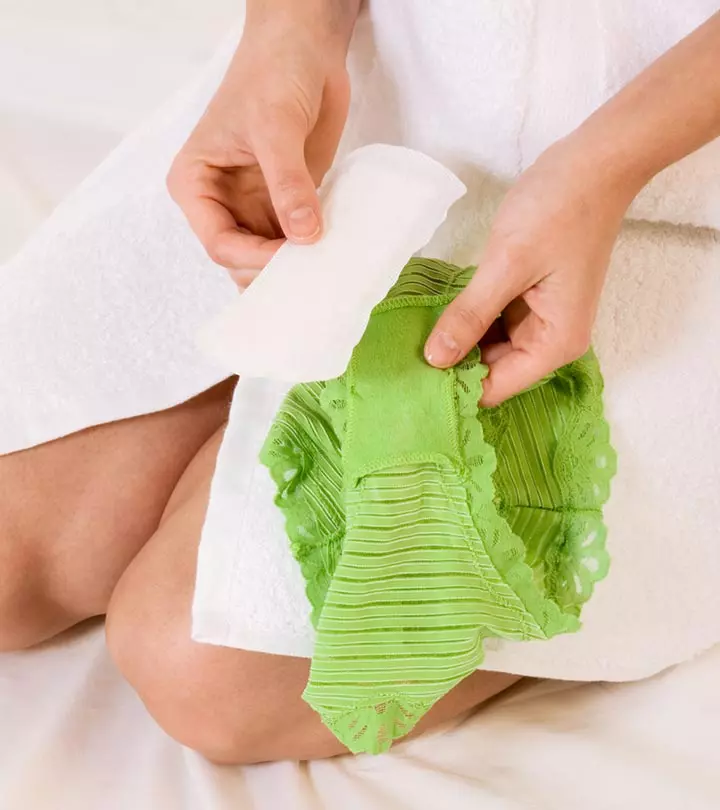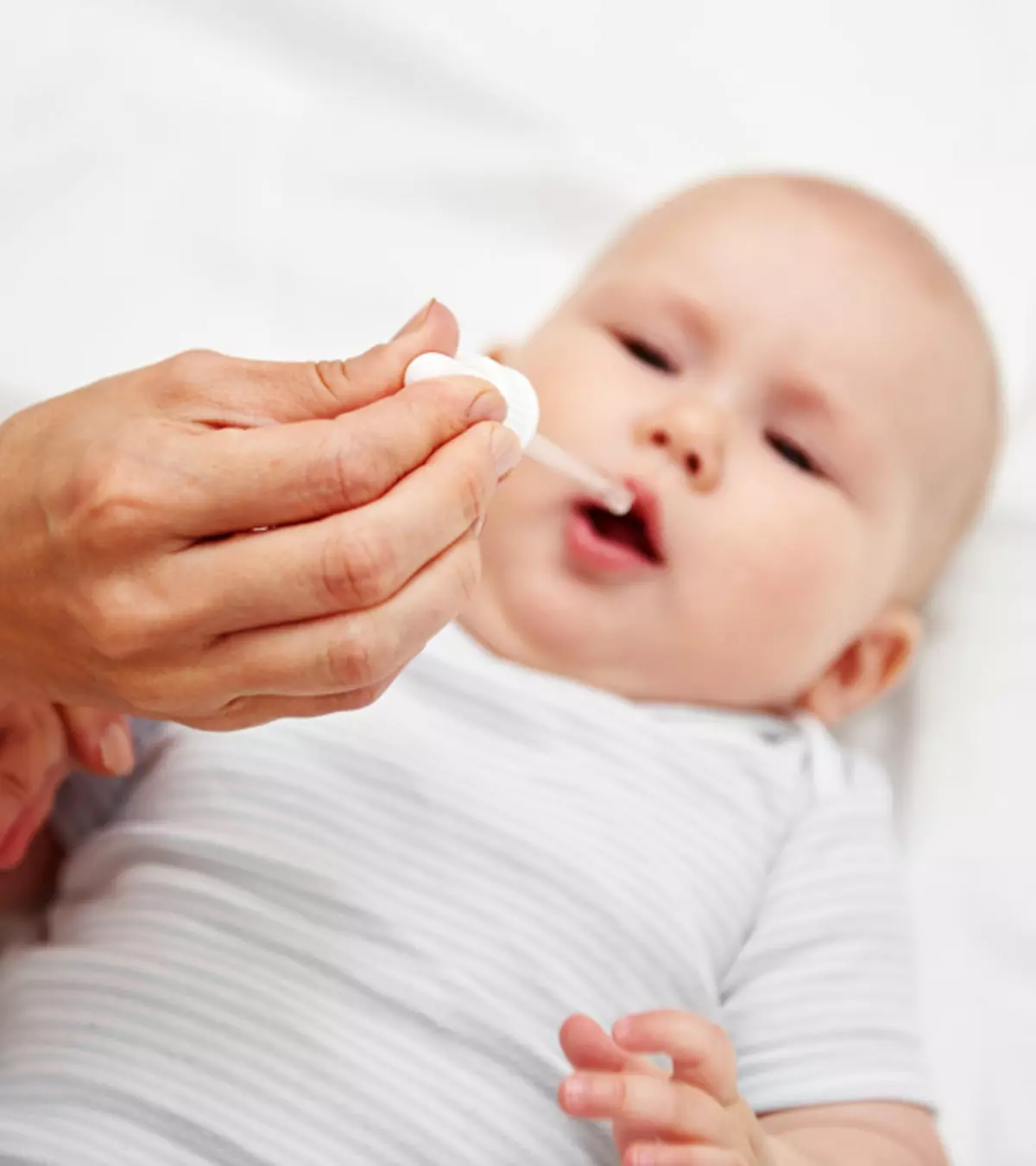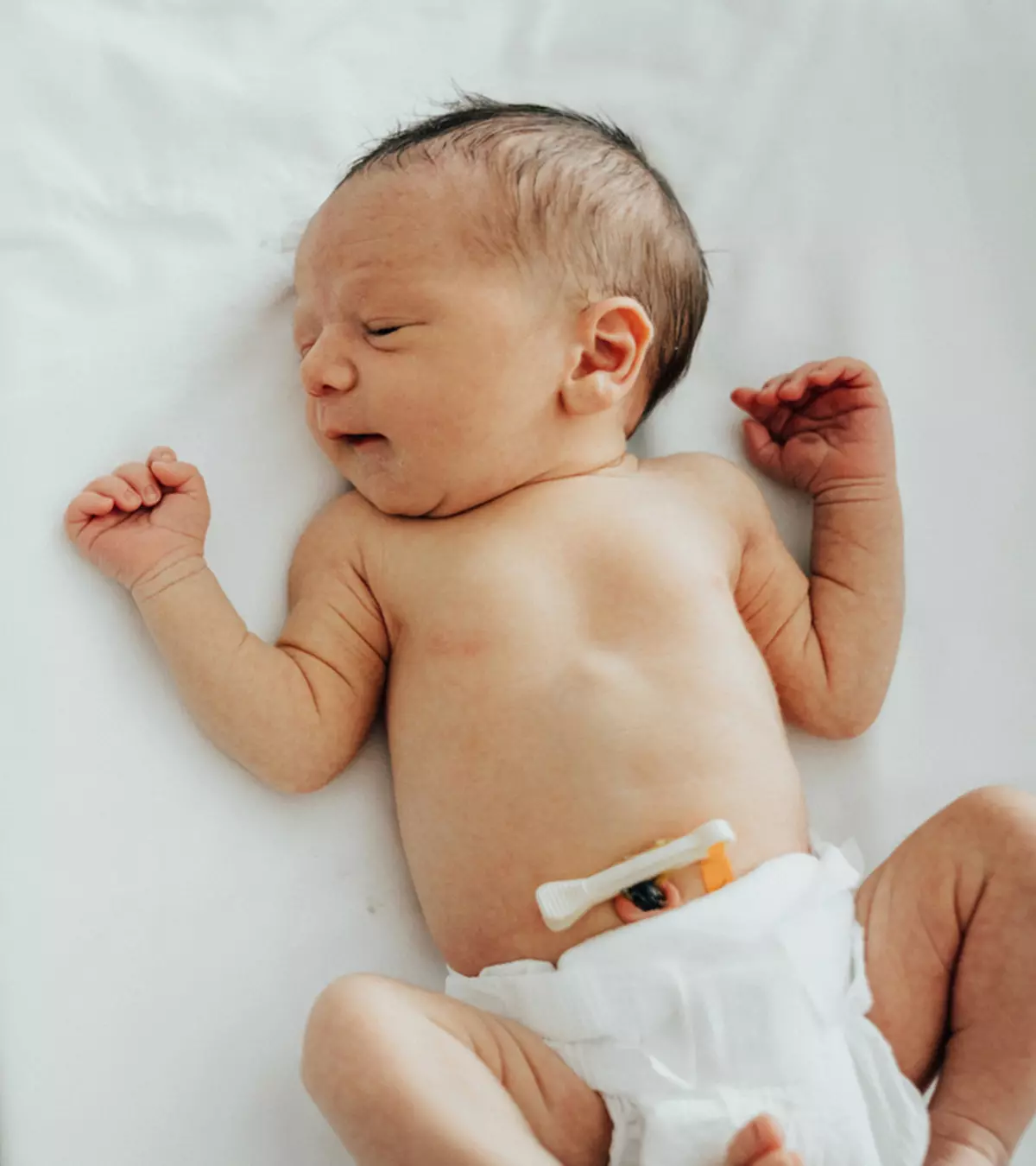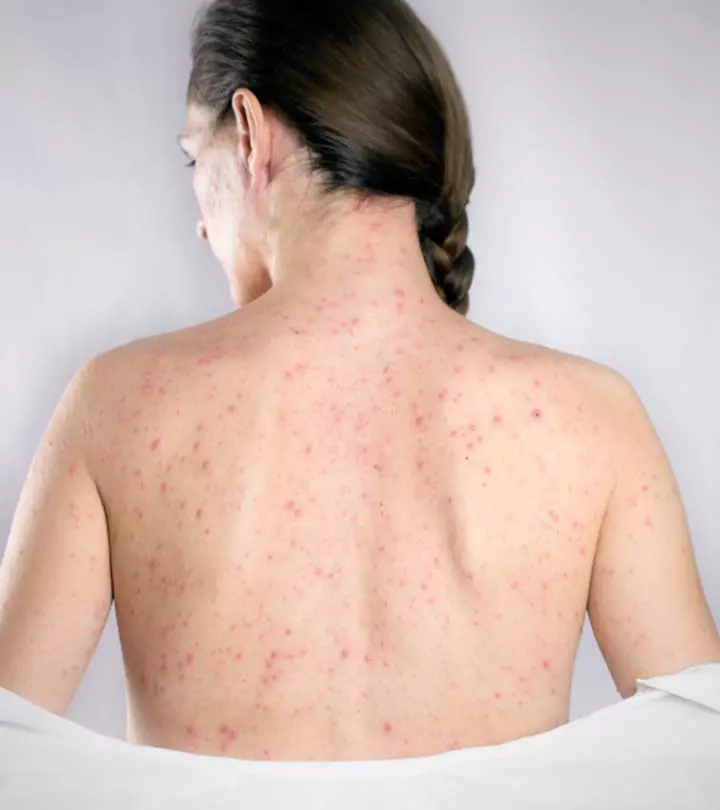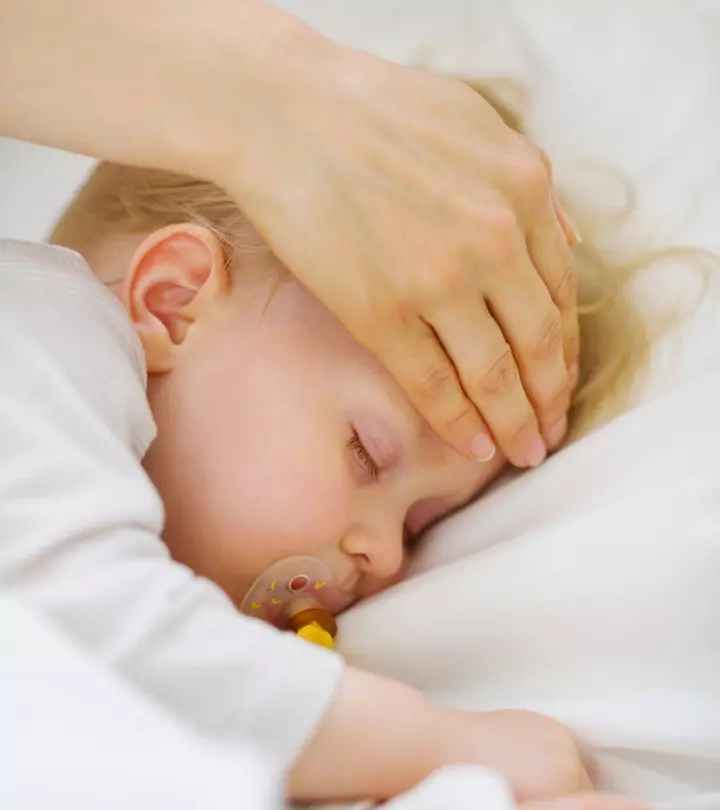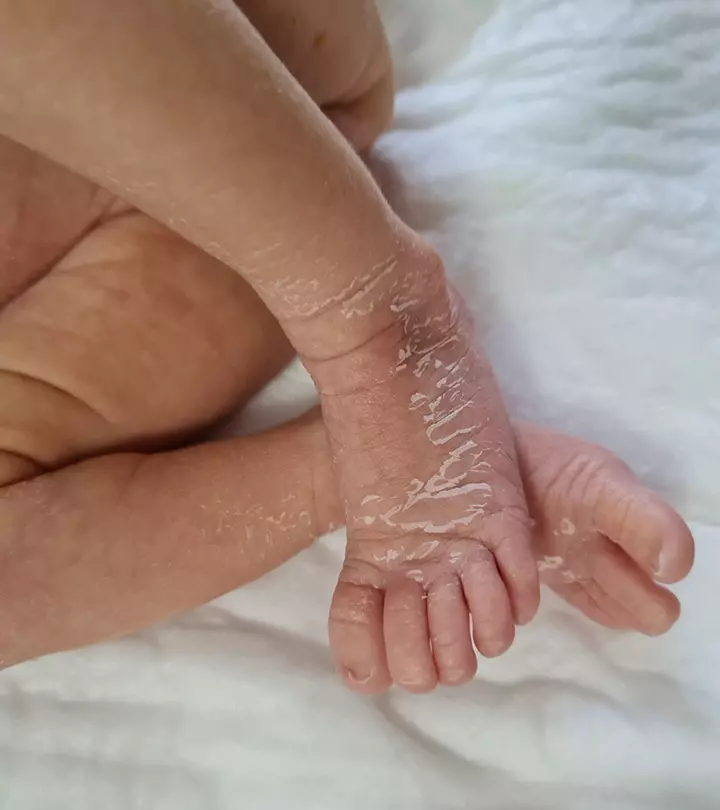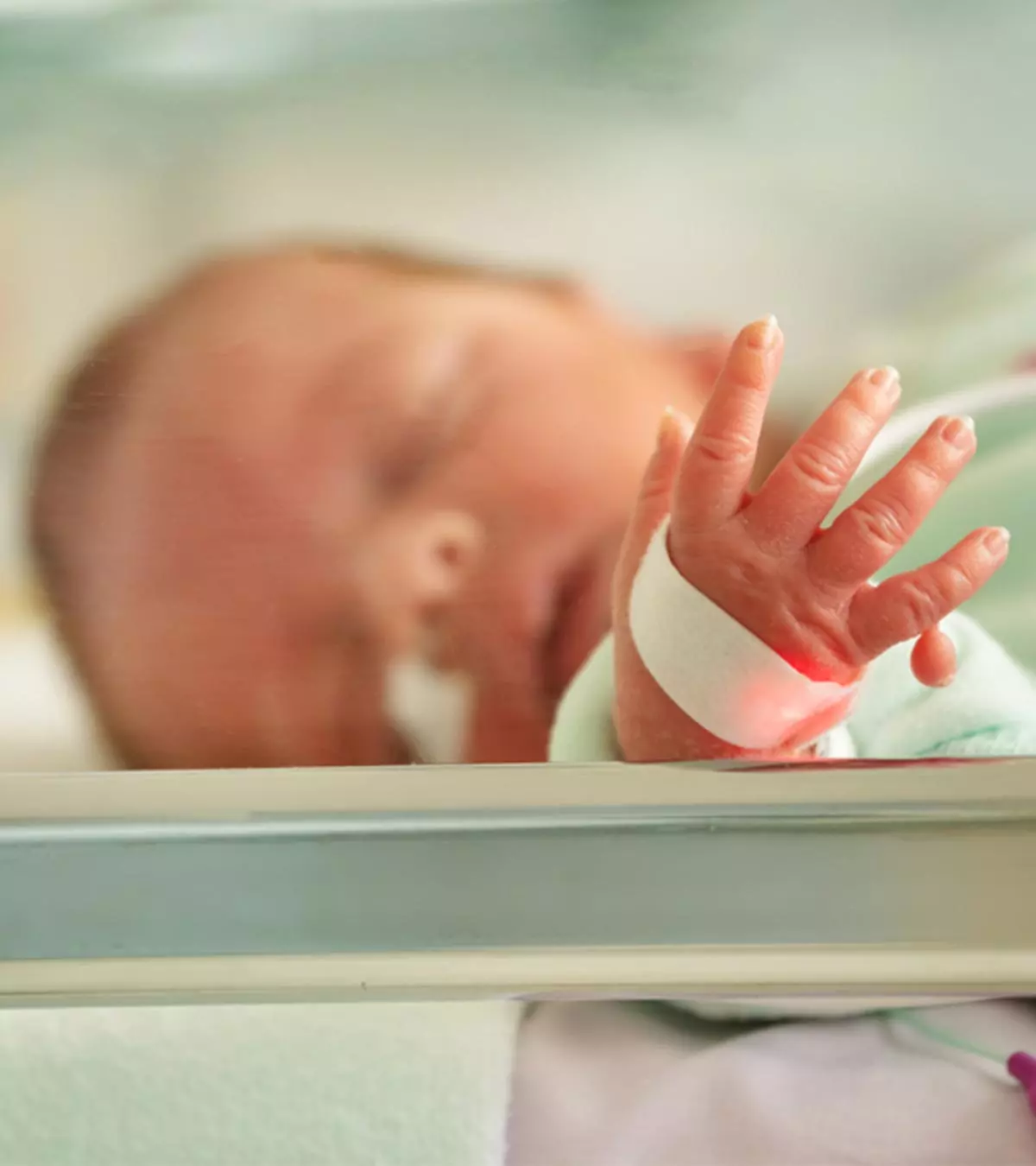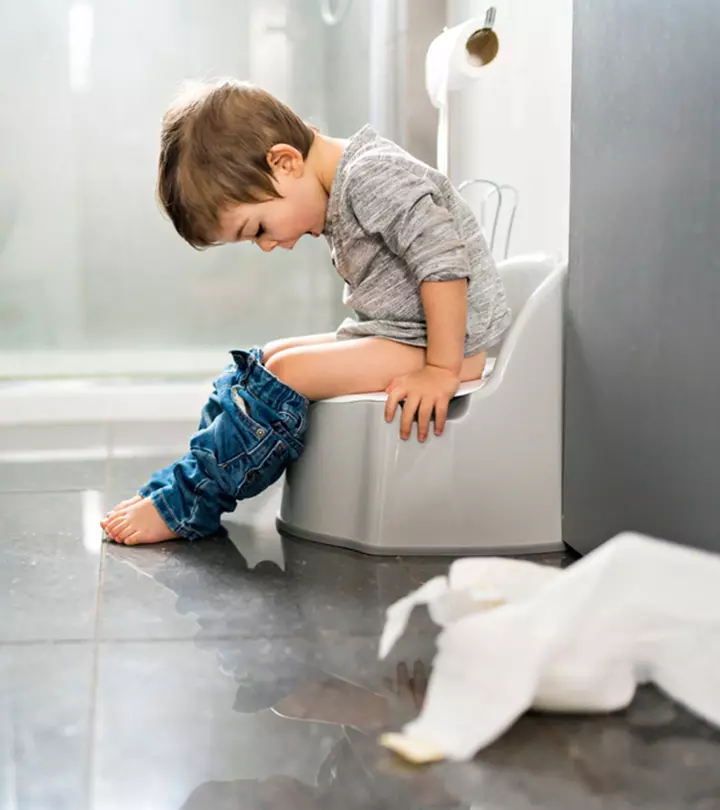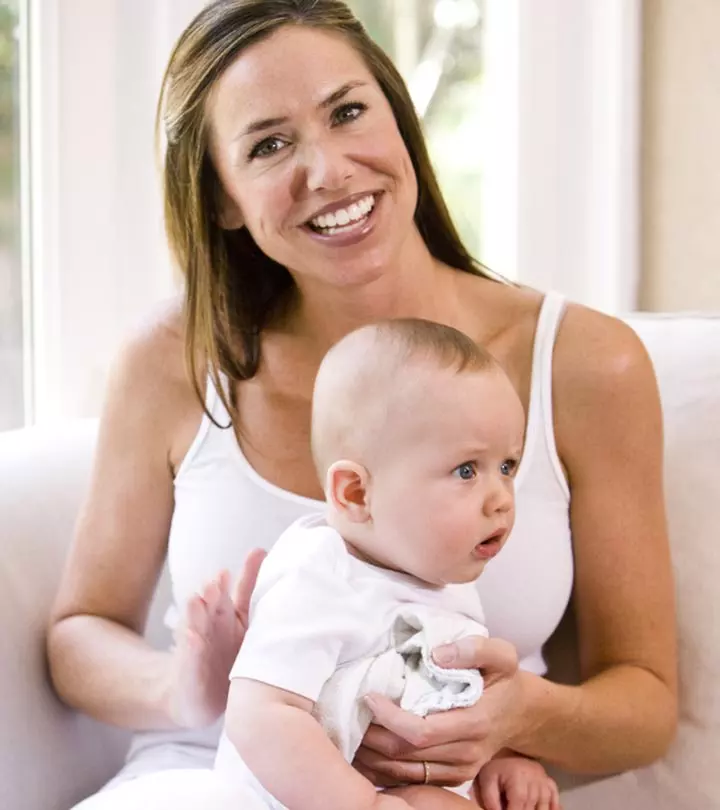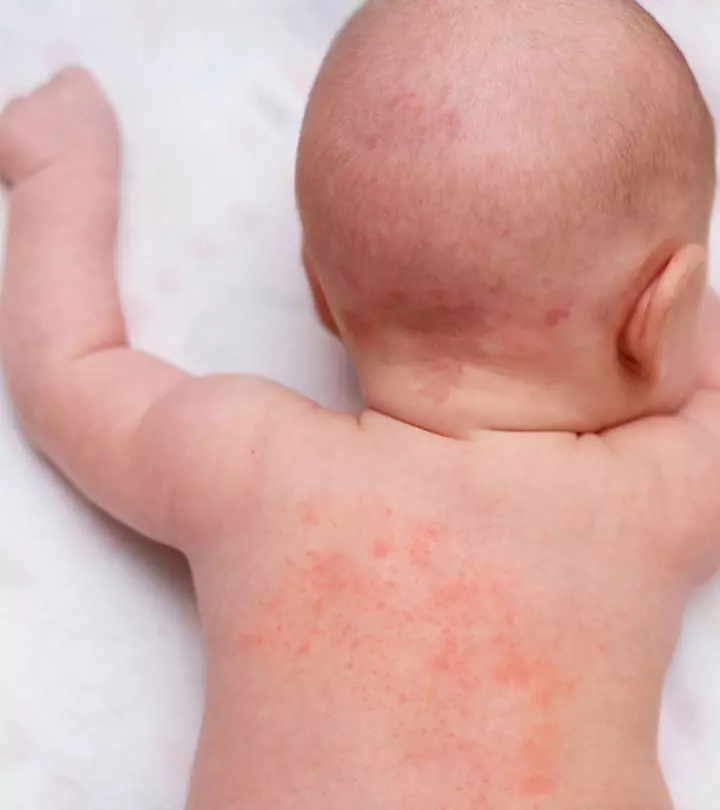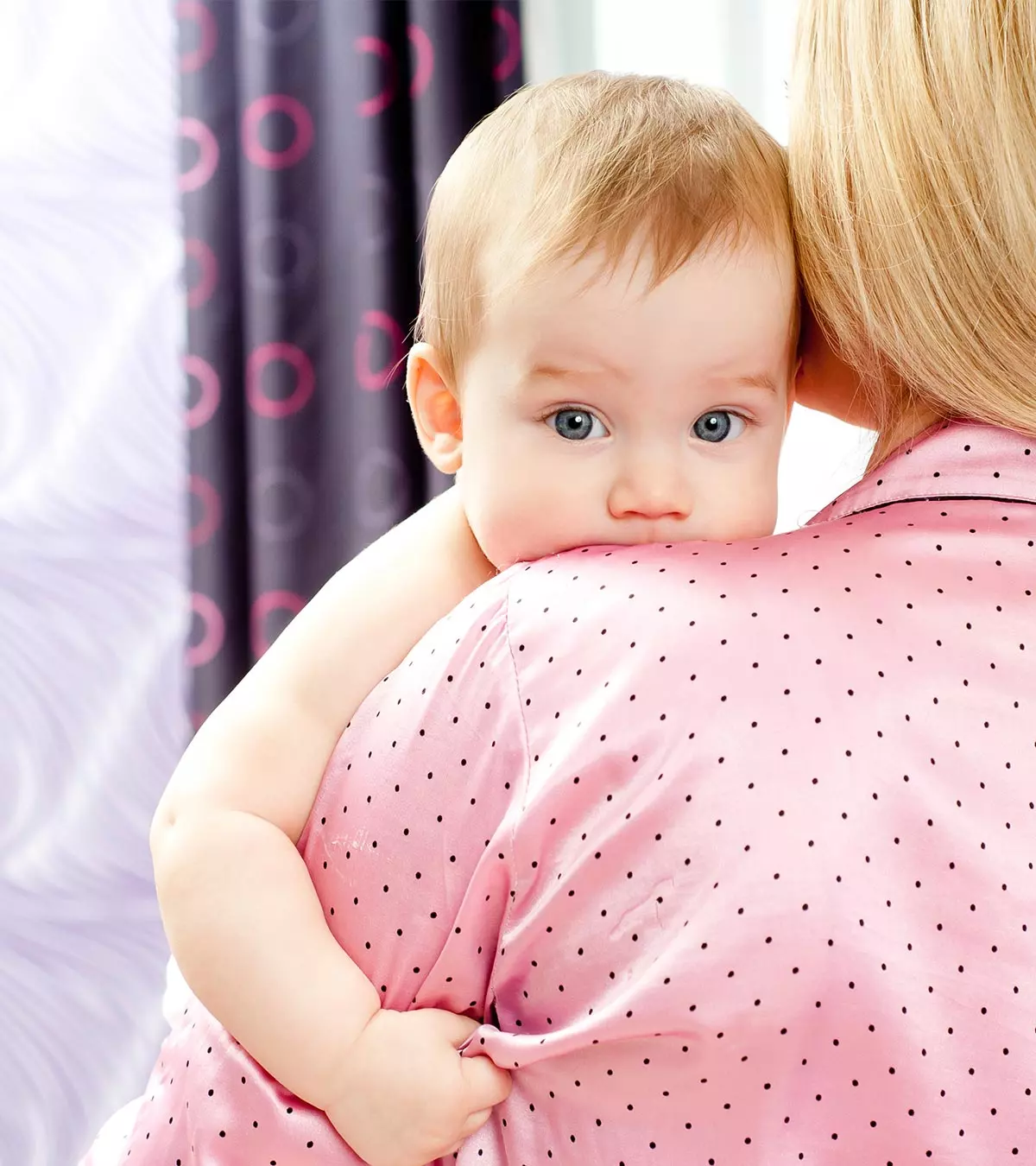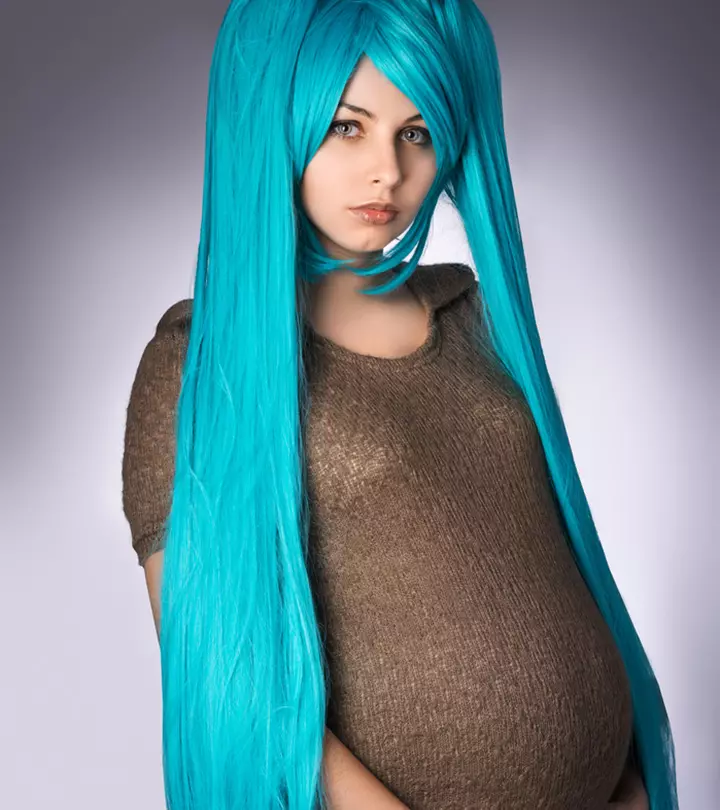
Image: Shutterstock
Pregnancy can make you cautious of even the simplest things that you would otherwise do regularly. An example of such activity is dyeing your hair. Many women may become wary of dyeing their hair since they may have concerns about the hair dye’s chemicals affecting the developing fetus. Can you dye your hair while pregnant, and will it affect your fetus?
Read this post to know the safety, precautions, and tips for dyeing hair during pregnancy.

Key Pointers
- Experts say that you may dye your hair during pregnancy, following certain precautions and safety measures.
- It is better to wait until the third trimester of pregnancy, choose safe products, and do a patch test to check for allergies.
- You may consider natural products such as henna and chamomile with lemon to dye your hair during pregnancy.
Is It Safe To Dye Your Hair During Pregnancy?
Yes, it is usually safe to dye your hair during pregnancy.
Experts say that the chemicals in hair dyes (both temporary and permanent) are absorbed in small quantities by the scalp unless there is an abscess or burn on the scalp (1). The compounds absorbed are unlikely to make it to the placenta in significant amounts (2). Therefore, dyeing your hair is quite unlikely to have any harmful effects on your fetus.
Galina Vertigo, a hairstylist and mom, shares her thoughts on coloring or dying hair during pregnancy, “This is my second pregnancy, and I colored my hair both times. My logic was simple. If any harm was ever caused by coloring chemicals – they would put a giant tag on each box: ‘Do not use during pregnancy.’ Damon (the hairstylist) was doing my hair forever and recommended I do the highlights, i.e., foils. That way, color (or bleach) won’t touch the scalp, so the chances of any harm are minimal (i).”
What Are The Risks Of Dyeing Hair For Pregnant Women?
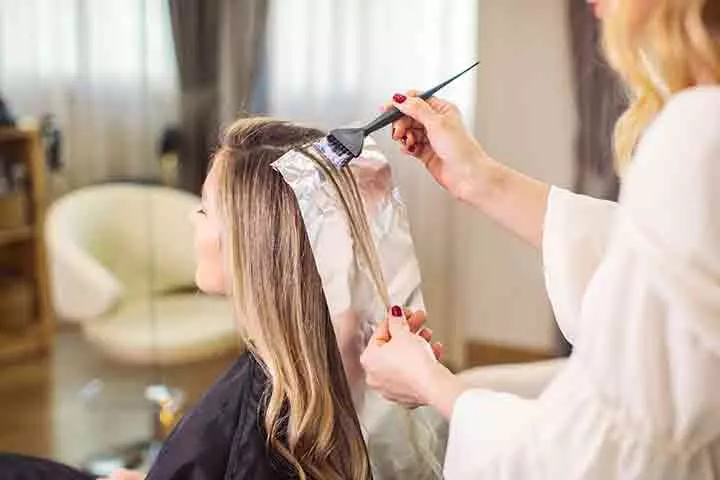
The use of hair dyes may pose the following risks in some pregnant women (3) (4).
- If you dye your hair regularly, your scalp may absorb more hair dye chemicals. It may cause a substantial quantity of chemicals to reach the placenta and fetus, increasing the risk of potential harm. However, it is not known what quantity of absorbed hair dye chemicals may harm the fetus.
- Allergies may worsen in some women during pregnancy (5). If you were slightly allergic to a hair dye, the allergy might worsen during pregnancy, causing significant discomfort.
- A study noted that maternal exposure to hair dyes and hair cosmetics might be a risk factor for leukemia in children younger than two years. However, large-scale research on various aspects of hair products and stages of pregnancy is needed to evaluate this association.
 Caution
CautionWhat Precautions Should You Take While Coloring Your Hair?

You may observe the following precautions to minimize the risk of any potential harm from hair dyes to you and your baby (3) (6).
- You may consider waiting until the end of the first trimester as this is the phase of rapid fetal development. The risk of hair dye chemicals affecting the fetus after the first trimester could be lower.
- Avoid dyeing your hair if you have a burn, abscess, or an open wound on the scalp. It may cause more quantities of hair dye chemicals to be absorbed by the skin.
- Check the hair dye’s package for any mention of whether the dye is pregnancy-safe or not recommended for pregnant women. Choose hair dyes free from ammonia and bleach.
- Give preference to semi-permanent hair dyes since they may have less concentration of chemical compounds than permanent hair dyes. You may also prefer plant based dyes like henna during your pregnancy.
- You may consider adding highlights or streaks to give yourself a hair makeover. In such cases, the dye stays on the hair strands and not the scalp.
- Wear gloves while dyeing your hair to minimize the number of chemicals absorbed by the skin. The chemicals may leave residues on your hands if you do not wear gloves, increasing the chances of accidental ingestion.
- Perform a patch test on a small section of the scalp, such as behind your ears, to check for any allergic reactions (7).
- Apply the dye in a well-ventilated room so that any volatile chemicals do not accumulate in the surrounding air and avoid chances of breathing in chemical fumes.
- Leave the dye for minimal time and rinse your scalp thoroughly.
- If you are going to a salon for hair dyeing, consider taking a hair consultation to know if coloring your hair is the right option for you.
 Be watchful
Be watchfulAre There Natural Ways To Dye Your Hair During Pregnancy?
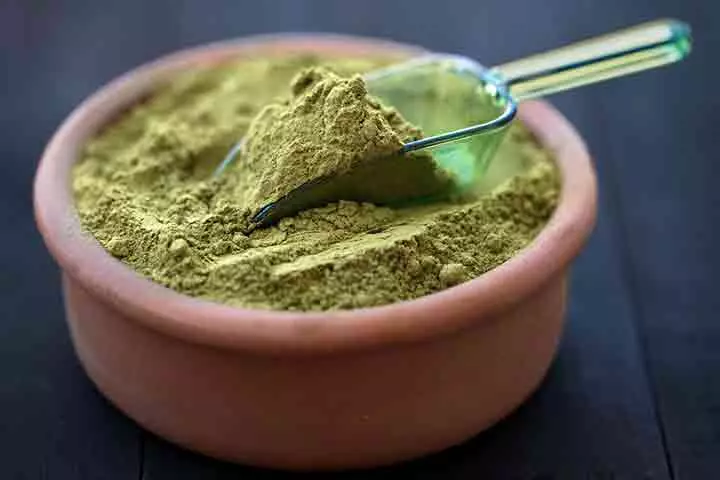
Here are some natural coloring agents you can use to get a hair makeover during pregnancy safely. Although they may not provide long-lasting results, they are much safer than chemical-based dyes (8) (9).
- Henna: Henna is a widely used ingredient in natural hair dyes. The leaves of the henna plant are powdered and applied as a paste. Henna imparts a brown to red shade to your hair. Choose natural and pure henna without any additives, artificial colors, and color enhancers. Some studies show using henna on hair roots can improve hair health by nourishing and strengthening both the roots and strands, which can protect against damage. Additionally, it can condition the hair, resulting in a smoother and more lustrous texture.
- Coffee and black tea: Coffee and tea powder may darken the hair. You may use the decoctions directly or along with hair conditioners.
- Hibiscus flowers: Hibiscus flower extracts can be used for hair coloring along with henna paste or decoctions. It may impart a crimson tinge to your hair. It can also help promote hair growth by enlivening dormant hair follicles.
- Lemon: Lemon juice may lighten your natural hair color temporarily. You may use lemon juice with hair oils or a conditioner.

- Chamomile: Chamomile paste is often used with honey, lemon, or henna. It may provide a shade of blond to your hair.
Frequently Asked Questions
1. Are perms and relaxers safe during pregnancy?
Relaxers or perms contain either lye (sodium hydroxide) or no-lye (potassium, lithium, or guanidine hydroxide) and are meant to straighten the hair permanently. These are generally considered safe during pregnancy as chemicals are not likely to be absorbed in amounts that might be harmful to the growing fetus (10) (11). Still, you may speak to your doctor before undergoing this hair treatment to avert any potential health or hair problems.
2. Can I bleach my hair while pregnant?
Bleach treatment uses hydrogen peroxide, and the bleach is not likely to penetrate your skin. Hence bleaching your hair is not prohibited during pregnancy. However, waiting for the first trimester to pass, selecting a well-ventilated area, and wearing gloves before applying bleach are some safety measures advisable during pregnancy (10) (11).
3. What ingredients in hair dye should be avoided during pregnancy?
According to a few studies, chemicals such as aminophenols, phenylenediamine and ethanolamine found in hair dyes (in high doses) have been linked to an increasing risk of teratogenicity in animal studies. However, it is important to note that these findings may not directly apply to humans, as these chemicals do not cross the placenta unless the scalp has burns or blisters (2).
4. What are the signs of an allergic reaction to hair dye when pregnant?
Most permanent and semi-permanent hair dyes contain a chemical called paraphenylenediamine (PPD), which can cause an allergic reaction. Some symptoms include itchy skin with a red rash and a general feeling of illness. In rare cases, it may lead to anaphylaxis (severe allergic reaction), causing symptoms such as wheezing, and swelling of eyes, lips, hands, mouth, and throat, leading to breathing difficulties (7).
Coloring your hair during pregnancy is usually safe and seldom affects the mother or the baby. However, there is limited research on the safety of hair dyes during pregnancy. You may stay on the safe side by postponing the dyeing of your hair to the second trimester. You may also consider natural hair dyes, which may not last very long but are safe for your pregnancy and overall hair care. Additionally, if you are approaching a salon for a hair treatment, it’s best to inform the hair professional how far along you are in pregnancy.
Infographic: Chemical-Free Hair Coloring Methods
We understand the desire to maintain your style while prioritizing the health of your growing baby. This infographic presents safe and gentle ways to add vibrant hues to your locks without compromising your baby’s health. Explore the wonders of nature’s palette as you embark on this exciting journey toward beautiful, pregnancy-safe hair transformations.
Some thing wrong with infographic shortcode. please verify shortcode syntaxIllustration: Dyeing Your Hair During Pregnancy: Safety Precautions To Take

Image: Stable Diffusion/MomJunction Design Team
Personal Experience: Source
MomJunction articles include first-hand experiences to provide you with better insights through real-life narratives. Here are the sources of personal accounts referenced in this article.
i. Is it safe to color my hair during pregnancy?https://vertigo28.wordpress.com/2013/07/17/is-it-safe-to-color-my-hair-during-pregnancy/
References
- Is it safe to dye my hair during pregnancy?
https://www.acog.org/womens-health/experts-and-stories/ask-acog/is-it-safe-to-dye-my-hair-during-pregnancy - Angela Chua-Gocheco et al.; (2008); Safety of hair products during pregnancy.
https://www.ncbi.nlm.nih.gov/pmc/articles/PMC2567273/ - Is it safe to use hair dye when I\’m pregnant or breastfeeding?
https://www.nhs.uk/start-for-life/pregnancy/using-hair-dye-in-pregnancy-is-it-safe/ - Arnaldo C. Couto et al.; (2013); Pregnancy, maternal exposure to hair dyes and hair straightening cosmetics, and early age leukemia.
https://pubmed.ncbi.nlm.nih.gov/23747844/ - Jamie Morgan; (2018); Itchy eyes, sore throat: How to manage allergies and asthma during pregnancy.
https://utswmed.org/medblog/allergies-asthma-during-pregnancy/ - Hair Treatment During Pregnancy.
https://americanpregnancy.org/healthy-pregnancy/is-it-safe/hair-treatments-during-pregnancy/ - Hair dye reactions.
https://www.nhs.uk/conditions/hair-dye-reactions/ - Vijender Singh et al.; (2015); Study of colouring effect of herbal hair formulations on graying hair.
https://www.ncbi.nlm.nih.gov/pmc/articles/PMC4471652/ - Abdel Naser Zaid et al.; (2017); Ethnopharmacological survey of home remedies used for treatment of hair and scalp and their methods of preparation in the West Bank-Palestine.
https://www.ncbi.nlm.nih.gov/pmc/articles/PMC5499037/ - Hair Treatment During Pregnancy.
https://americanpregnancy.org/healthy-pregnancy/is-it-safe/hair-treatments-during-pregnancy/ - Is It Safe to Dye Your Hair While You’re Pregnant?
https://health.clevelandclinic.org/dyeing-your-hair-while-pregnant
Community Experiences
Join the conversation and become a part of our nurturing community! Share your stories, experiences, and insights to connect with fellow parents.
Read full bio of Dr. Indira Vijayakrishnan
Read full bio of Vidya Tadapatri
Read full bio of Rebecca Malachi
Read full bio of Dr. Joyani Das





